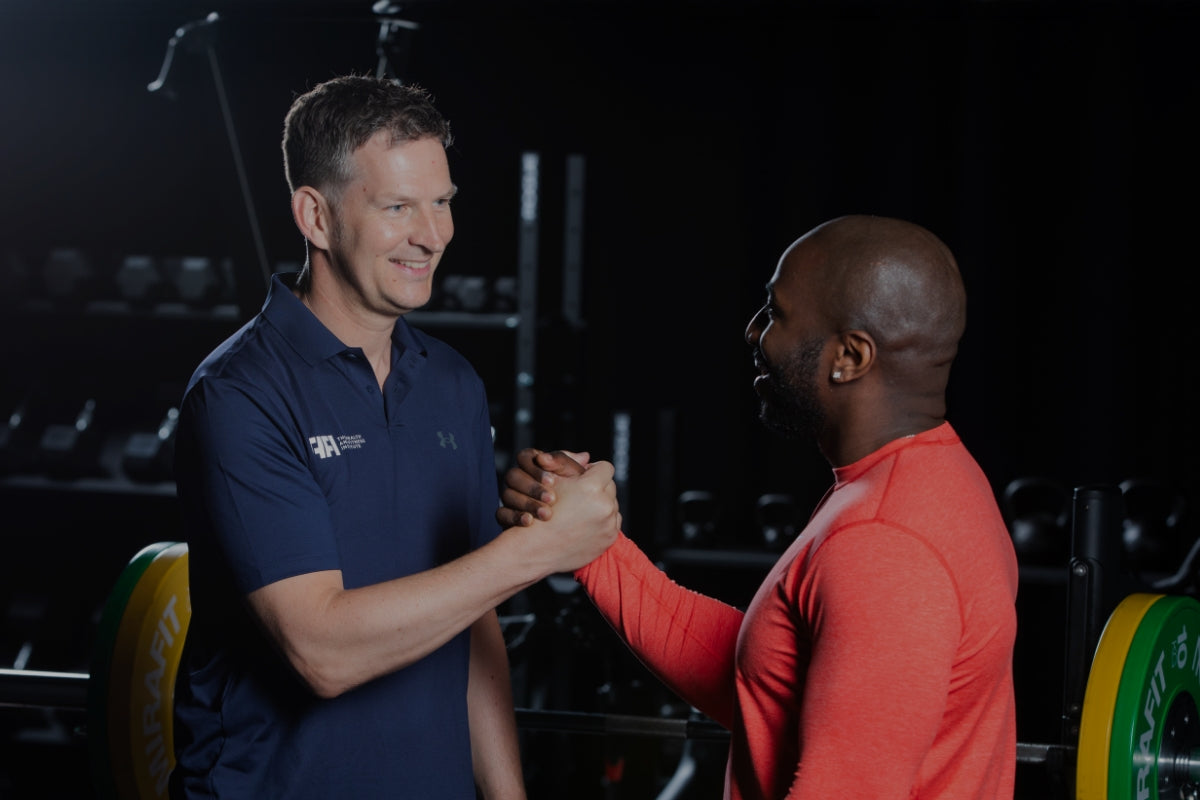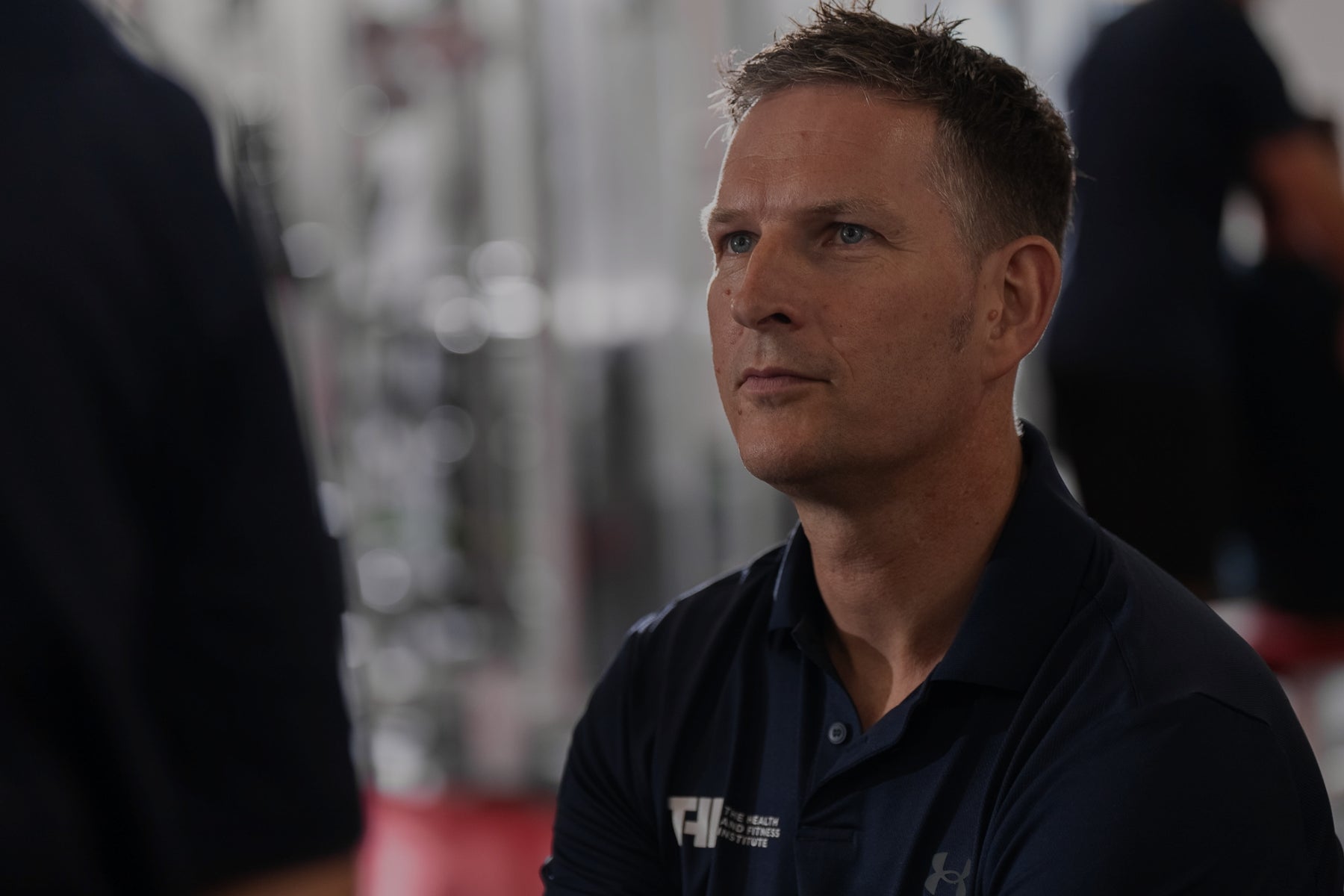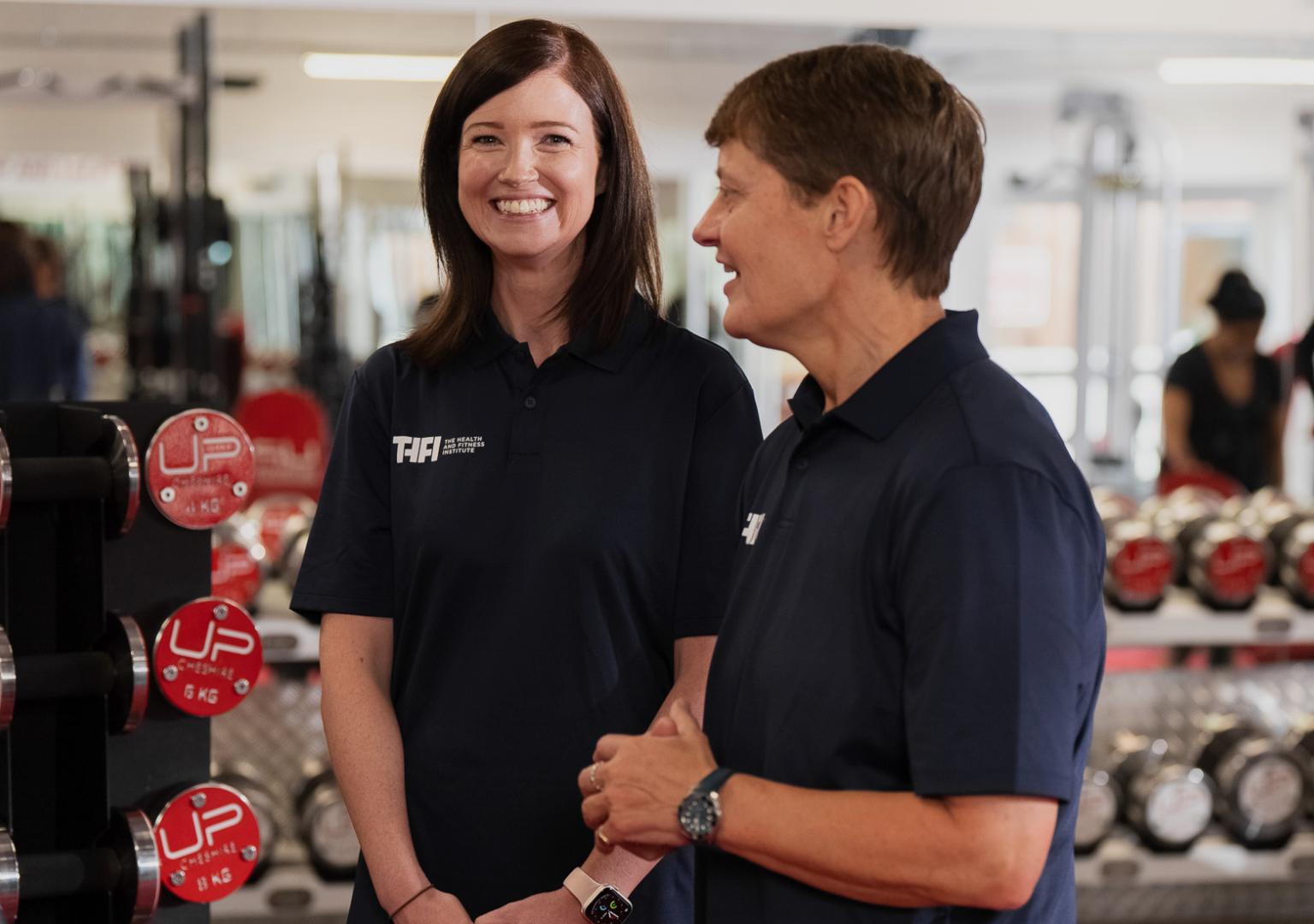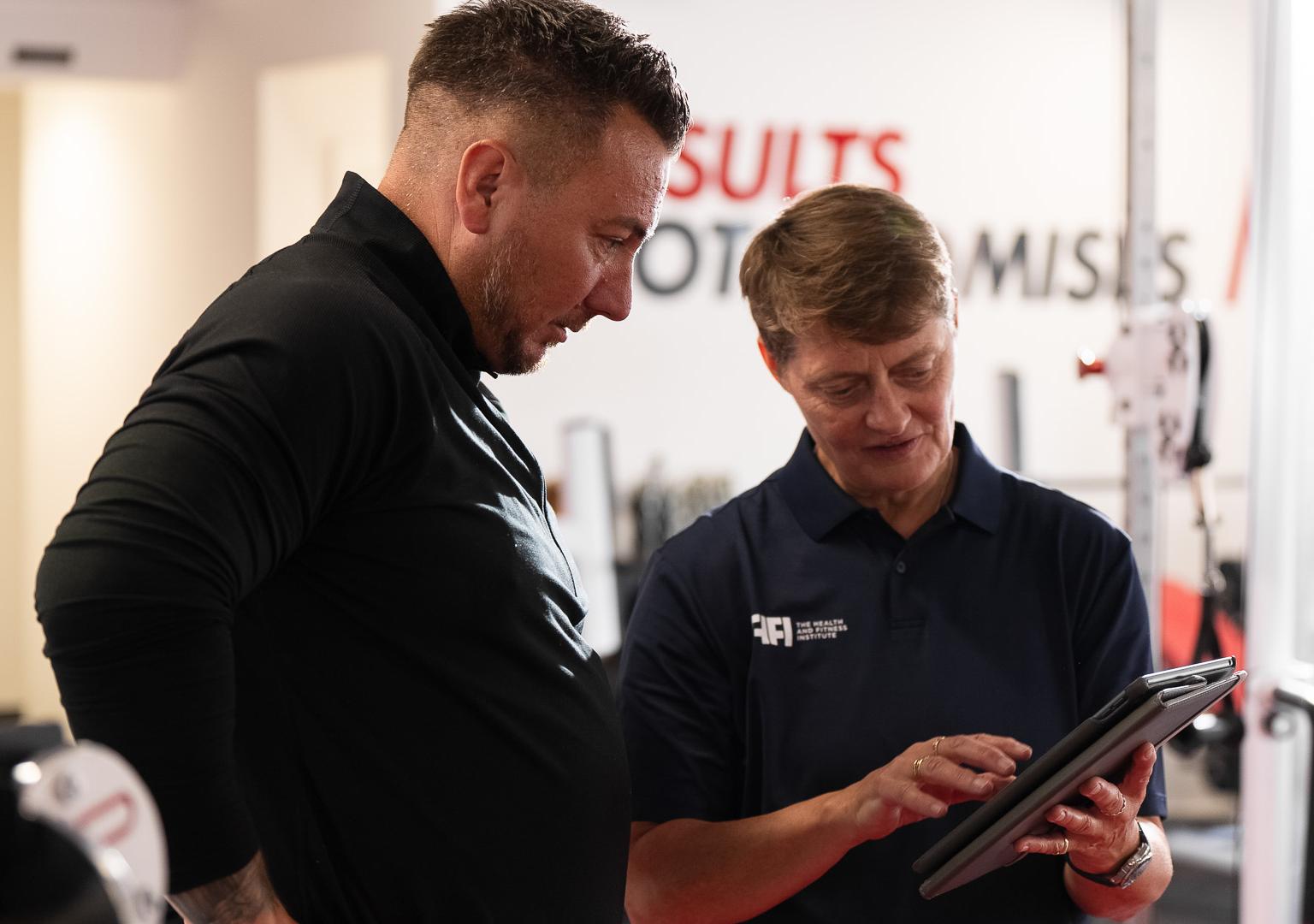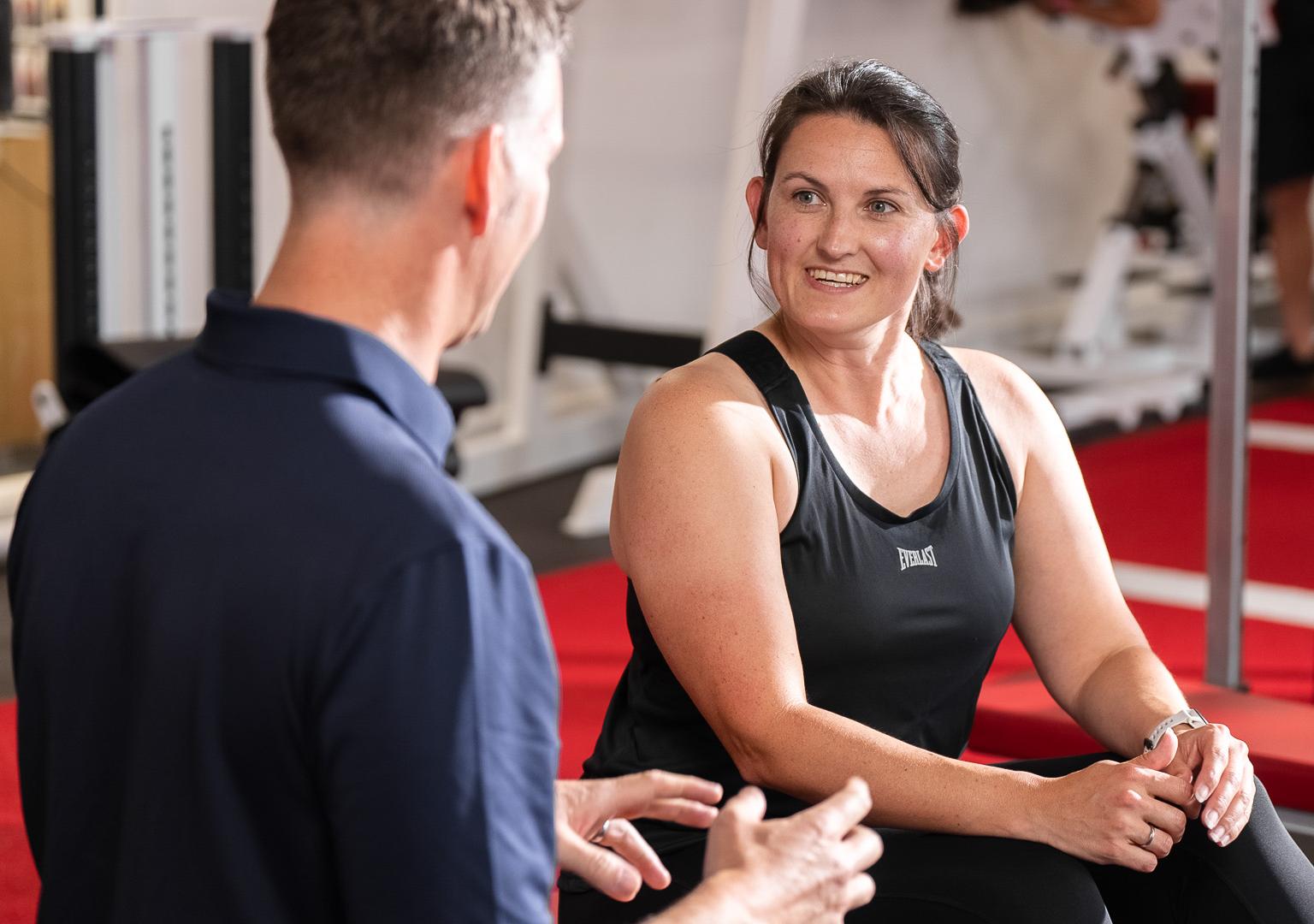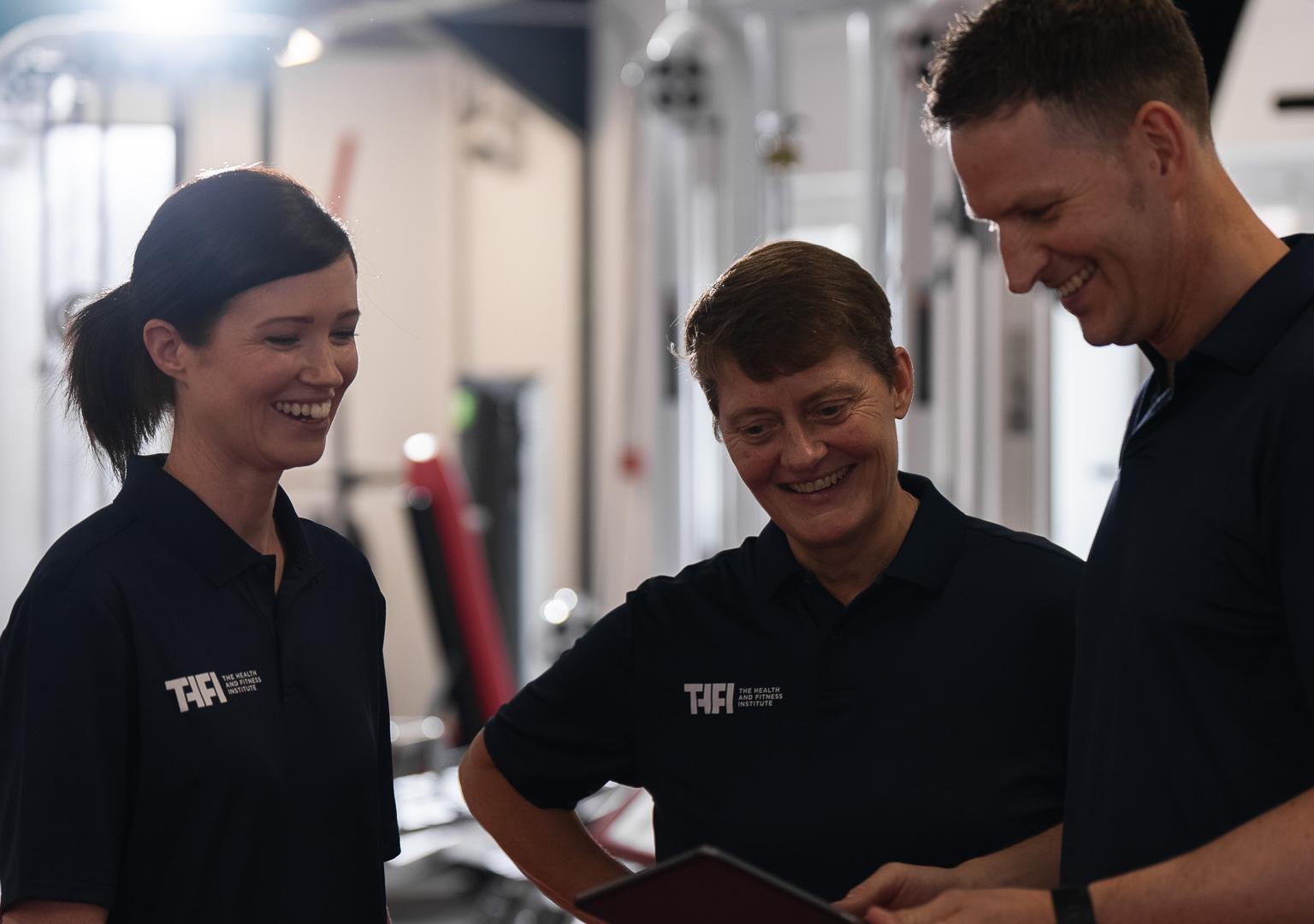5 Tips for Starting out as a Personal Trainer
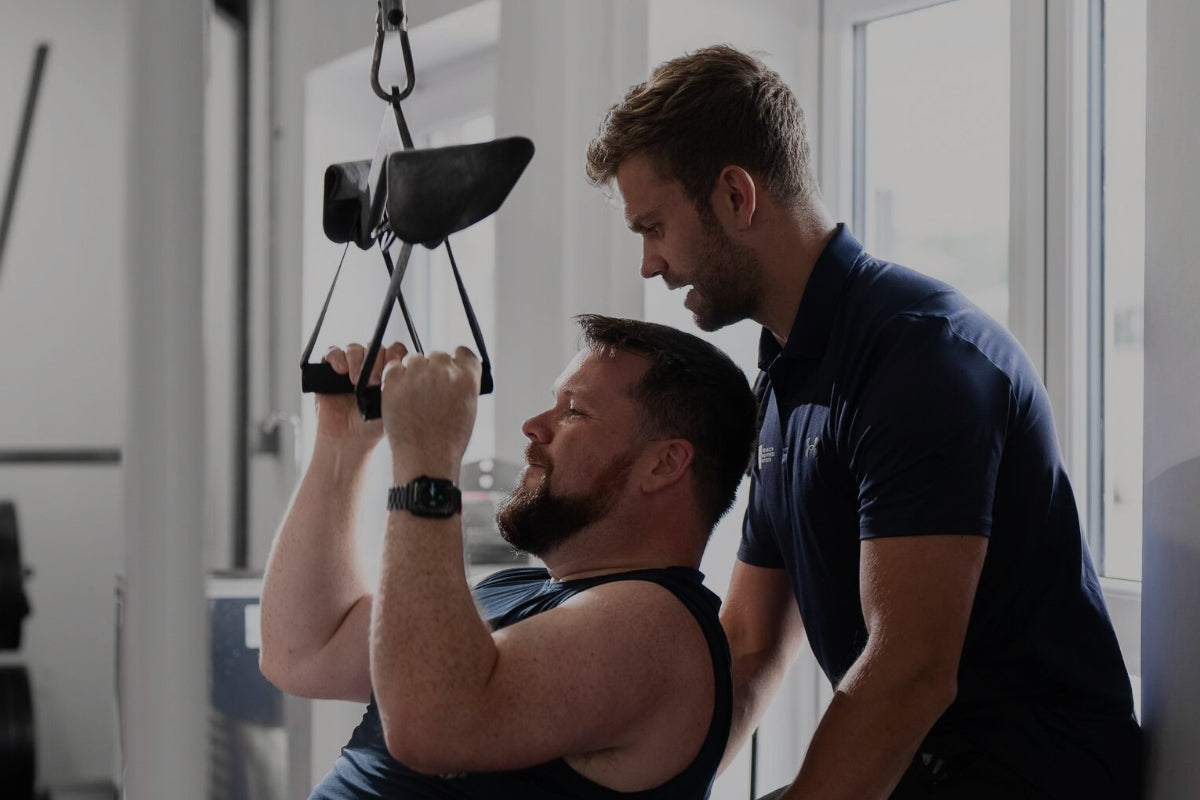
Do you want to know the shortcuts that will fire you to faster success on Day 1 of your personal training career?
Gain the inside track on ‘quick wins’ to become a better trainer, get better client results, and earn more money?
And learn the time-tested ways to build your business savvy, increase your sales, become a better communicator, and give your clients so much value they’ll tell all their friends and family?
This article gives you a cheat-sheet of five core steps you can take when you’re just starting out as a new personal trainer.
It’s your toolbox for mastering every aspect of the game—from sharp business acumen, selling like a pro, and building solid client relationships.
1. Build a client base
Every person is a potential client
If you want to raidly build your client base, remember that every person you meet is a potential client. In the booming fitness world, there’s a myriad of opportunities and a vast array of individuals yearning for a healthier lifestyle. Be it in the coffee shop, at a community event, or during a casual jog in the park – networking opportunities are everywhere.
Don’t underestimate the power of a friendly chat, a warm smile, or a business card handed at the right moment. Authenticity is key – be genuinely interested in people’s stories and fitness goals. Let your passion for fitness shine through every conversation, igniting a spark in others to start their own fitness journey. In this industry, creating connections is not just about expanding your client base; it’s about building relationships and trust, which are the bedrock of a thriving personal training career.
Marketing yourself
In today’s digital age, your online presence is your calling card. Social media is not just a tool; it’s a weapon of mass attraction. Platforms like Instagram, Facebook, Twitter and TikTok are your playground – use them to showcase your skills, share success stories, and impart nuggets of fitness wisdom.
Be original, be you. Your unique style and approach to fitness are what will set you apart in a saturated market. Create engaging content that reflects your personality and training philosophy, and watch as the likes, shares, and comments translate into enquiries and sign-ups.
And let’s not forget the age-old power of word of mouth – a satisfied client is your best advertisement. Encourage your clients to share their success stories and progress, and reward them with referral discounts or extra sessions. A positive testimonial is worth its weight in gold, and in the fitness world, results speak louder than any marketing campaign.
Offering free trials or discounts
People love a good bargain. You can offer free trials or discounts to generate more business. It’s not devaluing your service, it’s about giving people a taste of your expertise, a glimpse of their potential, and the nudge they need to commit to their fitness journey.
These offers are your opportunity to showcase your skills, build rapport, and demonstrate the transformative power of personal training. Remember, the goal is not just to gain clients but to retain them, and a satisfied client today could be your biggest advocate tomorrow.
2. Set realistic goals
Short-term vs long-term goals
Embarking on your journey as a personal trainer, it’s paramount to establish a balance between your immediate achievements and future aspirations. Just as you’d advise your clients, setting both short-term and long-term goals forms the backbone of sustained success and progression in your career.
Short-term goals act as stepping stones; they keep you motivated, focused, and bring a sense of accomplishment. These could be as simple as acquiring your first 10 clients, perfecting a particular workout regime, or creating a buzz on social media. Celebrate these small victories; they are the fuel that propels you forward.
Concurrently, long-term goals are your north star. They give your journey direction and purpose. Whether it’s opening your own gym, becoming a renowned fitness influencer, or revolutionising the industry with your methodologies – these aspirations require time, dedication, and a strategic approach. By harmonising your immediate victories with your grand vision, you create a roadmap that’s both inspiring and achievable.
Regular progress evaluation
In a world that’s ever-evolving, especially in the realms of fitness, staying stagnant is not an option. Regularly evaluating your progress isn’t just a recommendation; it’s a necessity. This practice enables you to reflect on what’s working, identify areas for improvement, and adjust your strategies accordingly.
Be your own critic – assess the impact of your marketing efforts, the satisfaction levels of your clients, and the advancement towards your long-term goals. Are you gaining traction on social media? Are your clients witnessing the transformations they desire? Are you inching closer to your big goals? Answering these questions will not only keep you grounded but will also pave the way for continuous improvement and adaptation.
Don’t shy away from tweaking your goals when needed. The fitness landscape is dynamic, and so should be your aspirations. Embrace change, learn from every experience, and remember – every setback is a setup for a comeback.
3. Establish a professional identity
Finding your niche
The fitness industry is a broad church, so you need to find your niche. Specialising in a specific area not only sets you apart but also allows you to dive deep into your passion and expertise. Whether it’s strength training, yoga, nutrition, or sports conditioning – pinpointing your focus can be the catalyst for unparalleled success.
Having a niche doesn’t limit you; it elevates you. It enables you to hone your skills, deepen your knowledge, and become the go-to expert in that domain. Clients seeking specialised services are more likely to trust and invest in a trainer with expertise in that particular area.
Branding and online presence
Creating a consistent and appealing brand image is non-negotiable in this digital age. Your brand is your story, your ethos, and the visual and emotional imprint you leave on prospective clients. It’s the essence of who you are and what you stand for in the fitness world.
Your online presence is the window through which the world sees you. Be consistent in your messaging, your visuals, and the values you project. Whether it’s through your website, social media platforms, or online interactions – ensure that every touchpoint is a true reflection of your personal brand. Authenticity is key – let your true self-shine through, and attract clients who resonate with your ethos.
Moreover, an impactful online presence isn’t just about aesthetics; it’s about adding value. Share insightful content, engage with your audience, and showcase your expertise. Build relationships, foster trust, and position yourself as an authoritative figure in your niche.
4. Essential soft skills
Communication is key
You can be the expert with the best know-how in the business, but if you can’t communicate effectively, it’s all for nothing. Good communication is the bridge between your expertise and your client’s understanding. It isn’t just about imparting knowledge; it’s about listening, understanding, and responding in a way that resonates.
Adopting diverse communication strategies is vital. Tailor your approach to each client, understanding their preferred learning style, their motivations, and their apprehensions. Some may thrive on detailed explanations and constant feedback, while others may prefer simplicity and encouragement. Be adaptable, be attentive, and, most importantly, be clear and concise.
Create an environment where clients feel comfortable expressing their thoughts, concerns, and goals. Encourage questions, provide clarifications, and ensure they leave each session with no ambiguity. Remember, a well-informed client is an empowered client, and empowerment breeds success.
People skills and empathy
Personal training is more than just reps, sets, and programs – a big part of it is understanding and connecting with clients on a personal level. People skills and empathy are not just desirable traits; they are essential ingredients in the recipe for a successful personal training career.
Empathy is about walking in your client’s shoes, understanding their struggles, their motivations, and their aspirations. It’s about creating a supportive and non-judgmental environment, where clients feel valued and understood. This emotional connection fosters trust, encourages openness, and builds a strong trainer-client relationship, which is the foundation of transformative progress.
Developing strong people skills involves active listening, being approachable, and showing genuine interest in your client’s wellbeing. It’s about recognising non-verbal cues, adapting your approach based on individual needs, and being a pillar of support and motivation. Remember, every client is a unique individual with distinct needs and emotions – recognising and respecting this diversity is the hallmark of a great personal trainer.
In conclusion, mastering the art of communication and developing strong people skills and empathy are indispensable in your journey as a personal trainer. These soft skills are the threads that weave strong, lasting relationships with your clients, fostering an environment of trust, mutual respect, and shared success. So, listen actively, connect deeply, and let your empathy and people skills be the catalysts for transformative change in your clients' lives.
5. Continuous learning and mentorship
Stay updated with industry trends
In an industry as dynamic and ever-evolving as fitness, the thirst for knowledge should never be quenched. Staying abreast of the latest trends, research, and methodologies is not just a pathway to excellence; it’s a commitment to your craft and your clients. Continuous learning equips you with the tools to diversify your offerings, adapt to the shifting fitness landscape, and position yourself as a forward-thinking and informed professional.
The benefits are clear. It enhances your credibility, fuels your passion, and fosters a culture of innovation and excellence in your practice. Your clients, too, reap the rewards of your dedication to learning, as they experience varied, effective, and cutting-edge approaches to fitness. In essence, continuous learning is the bedrock upon which a thriving, resilient, and impactful personal training career is built.
Participate in workshops, attend conferences, pursue additional certifications, and immerse yourself in industry literature. Engage with online forums, connect with fellow professionals, and never shy away from exploring uncharted territories in fitness. Remember, in a world of constant evolution, adaptability is your greatest asset.
Find a mentor
When you’re starting out on a new career in fitness, a mentor acts as your compass, providing direction, support, and invaluable insights born from experience.
A mentor offers a wealth of knowledge and practical advice, helping you sidestep pitfalls and seize opportunities. They provide a fresh perspective, challenge your thinking, and encourage you to reach heights you never thought possible. Moreover, the support and encouragement from someone who’s been in your shoes can is invalauble to know you’re on the right path
Seeking a mentor is about being proactive, reaching out to potential advisors, and building relationships within the fitness community. It’s about being open to feedback, embracing learning opportunities, and cultivating a mindset of humility and gratitude. Remember, a mentorship is a two-way street – be willing to listen, learn, and contribute to this enriching relationship.

